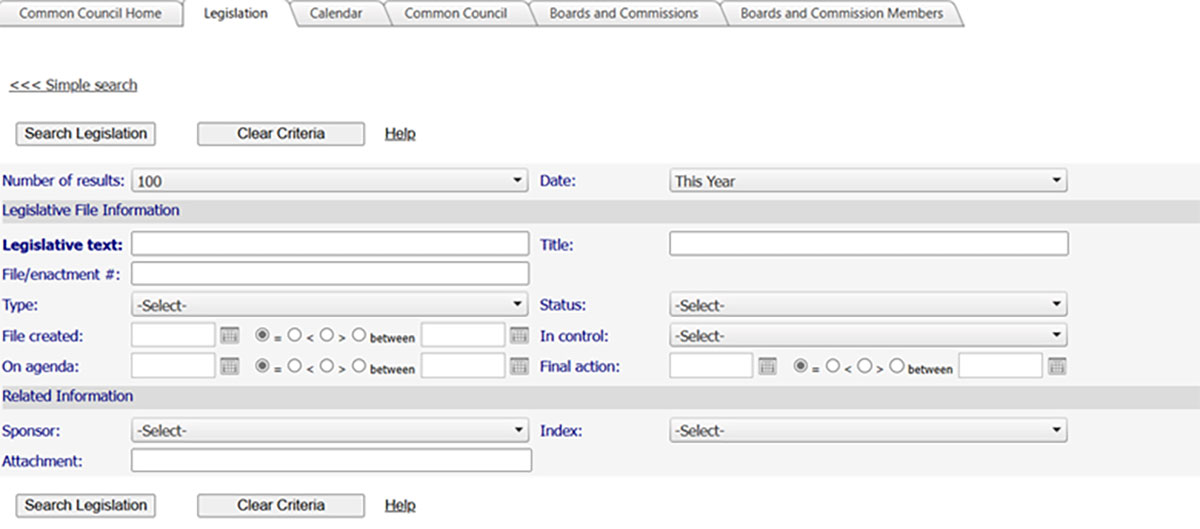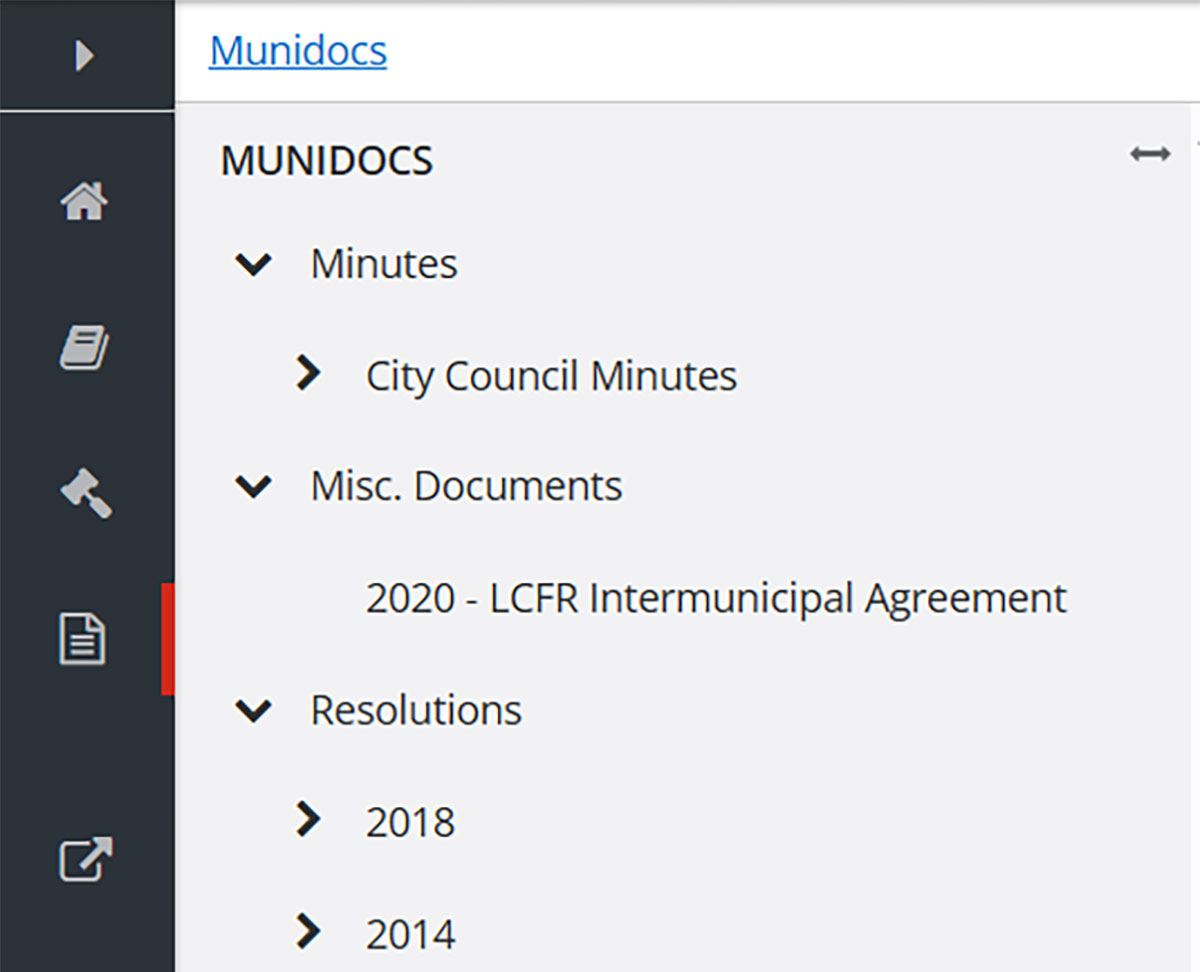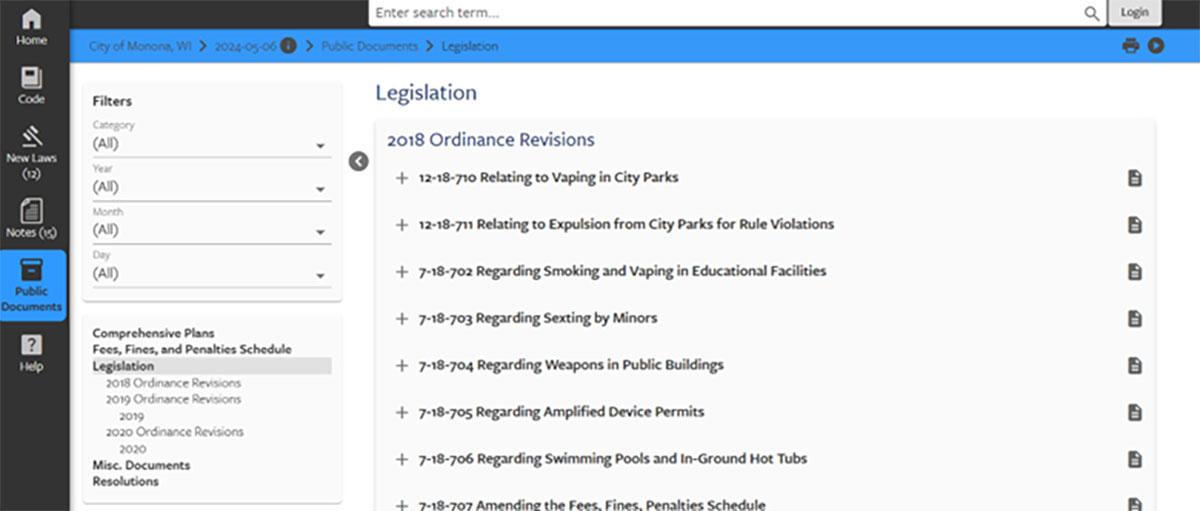
June 18, 2025 – Legislation happens everywhere – not just in Washington, D.C., or Madison, but right in your own municipality, where counties, towns, villages, and cities shape the rules that govern daily life.
Researching municipal legislation requires looking beyond the municipal code, although a municipality’s code can be a good starting point for identifying legislation.
In some instances, legislative information is housed alongside the code. For more information about researching municipal codes themselves,
see Deborah Darin’s article and list in the Nov. 1, 2023, issue of InsideTrack, as well as the Wisconsin State Law Library’s
current list of online Wisconsin ordinances and codes.
Municipal legislative information includes records of proposed and adopted ordinances, resolutions, meeting agendas and minutes, fiscal notes, and other documents that detail the local lawmaking process.
This article will guide you to key sources for uncovering municipal legislative information.
Exploring Municipal Websites
Perhaps the best starting point for municipal legislation research is the municipality’s own website.
 Franky Newcomb is a reference and instructional services librarian at Marquette University Law School. They are a current member of the Law Librarians Association of Wisconsin.
Franky Newcomb is a reference and instructional services librarian at Marquette University Law School. They are a current member of the Law Librarians Association of Wisconsin.
What’s available on each website varies between municipality. An easy way to find a municipal website is to run a web search using the municipality’s name. It’s also worth noting that the Wisconsin State Law Library’s
current list of online ordinances and codes often links directly to the municipal websites, and that the Wisconsin Towns Association keeps a list of
town websites.
Once you’ve located the relevant website, look for tabs or links labeled “Legislation,” “Calendar,” “Agenda,” or similar terms indicating legislative activity. Meeting agendas or minutes might provide context on legislative discussions; show what new rules are being considered, debated, or passed; or sometimes list proposed ordinances and resolutions.
You can also explore sections for municipal departments or committees to find documents and records they have produced. Any of these links might redirect you to a legislative management software website, the most common of which are discussed below. Many municipal websites also have search bars that can help with navigation and keyword searching.
Tracking Legislation with Legistar
For municipalities using the management software Legistar, it’s possible to follow the municipal legislative process from start to finish.
Currently, the following counties and cities are available on Legistar:
Legistar offers several search options to find, discover, and track legislation. Each file includes information such as the legislation’s status, a chronological list of actions, meeting details, and drafting records. By creating an account, users can also sign up for updates. The City of Madison’s website includes detailed instructions on
setting up Legistar alerts which can be applied to other Legistar accounts as well.

Figure 1: Legistar’s advanced search function includes several ways to find legislative information.
Accessing Legislative Records on Municode
Although less robust than Legistar, Municode (along with eCode360, discussed below) is another municipal software platform where legislative information may be found.
A list of all the Wisconsin municipalities available on Municode can be found on the
Wisconsin Municode landing page. However, not all municipalities on Municode include their legislative information.
Municipalities that provide legislative content typically have a “Munidocs” tab where researchers can find documents such as meeting minutes, resolutions, and intermunicipal agreements. From the homepage, researchers can click “View What’s Changed” to access legislation that has been enacted but not yet codified. Those files often include legislative information such as the sponsors, fiscal notes, and drafter’s analyses.

Figure 2: From the “Munidocs” tab, view minutes, resolutions, and intermunicipal agreements.
Finding Legislative Updates on eCode360
Similarly, the
eCode360 Wisconsin landing page provides a list of the Wisconsin municipalities available on the platform. Legislative information is typically found under two tabs: New Laws and Public Documents. However, these tabs are not available through every municipality on eCode360.
Where available, the New Laws tab displays adopted legislation that has not yet been codified. Researchers can access a PDF of ordinances, which may contain information regarding the person or group who introduced the ordinance, the date adopted, and recitals that offer insight into legislative intent. The Public Documents tab, where available, includes agendas, budgets, minutes, resolutions, and other legislative materials.
Both tabs feature a search bar that allows keyword searchers within documents, along with filters to narrow results.

Figure 3: Researchers can either filter or keyword search results on eCode360.
When Online Research Isn’t Enough Contact the Municipal Clerk
Keep in mind that not all municipal legislative information is kept online, and what is available can vary widely between municipalities. Additionally, online information may not always be current or complete. Reaching out directly to the municipal clerk can help ensure you have the most accurate and up-to-date records.
Often, the best strategy is to contact the municipality directly. Contact information is usually posted on the municipality’s website. The Wisconsin Department of Administration, Division of Intergovernmental Relations, also maintains a
directory of municipal and county clerks.
Need Help? Ask a Law Librarian
Got questions about researching municipal legislation? Don’t hesitate to reach out to a friendly law librarian – we’re experts at navigating the ins and outs of legal research and are happy to help! You can find law librarians ready to assist you at these Wisconsin libraries:
